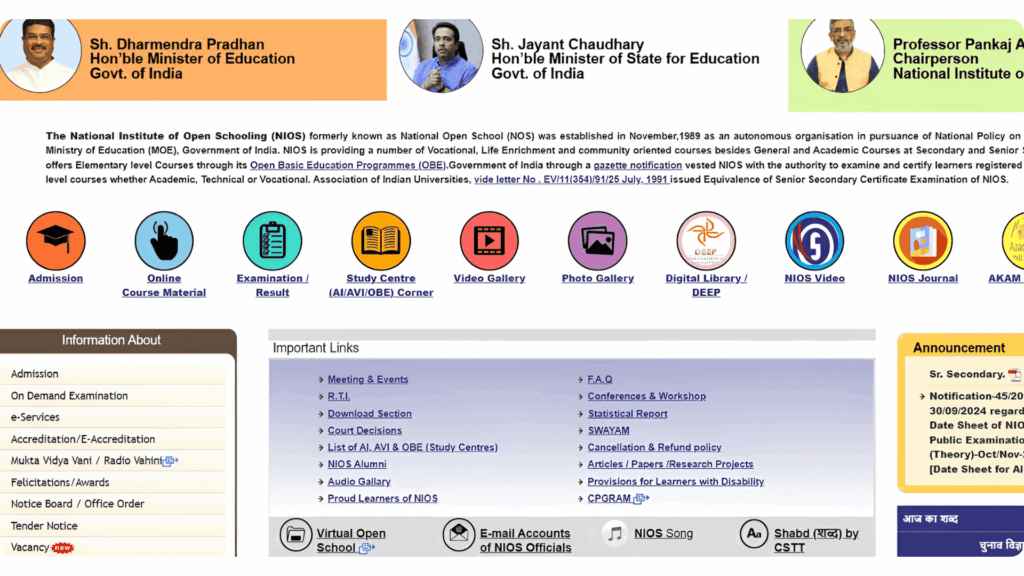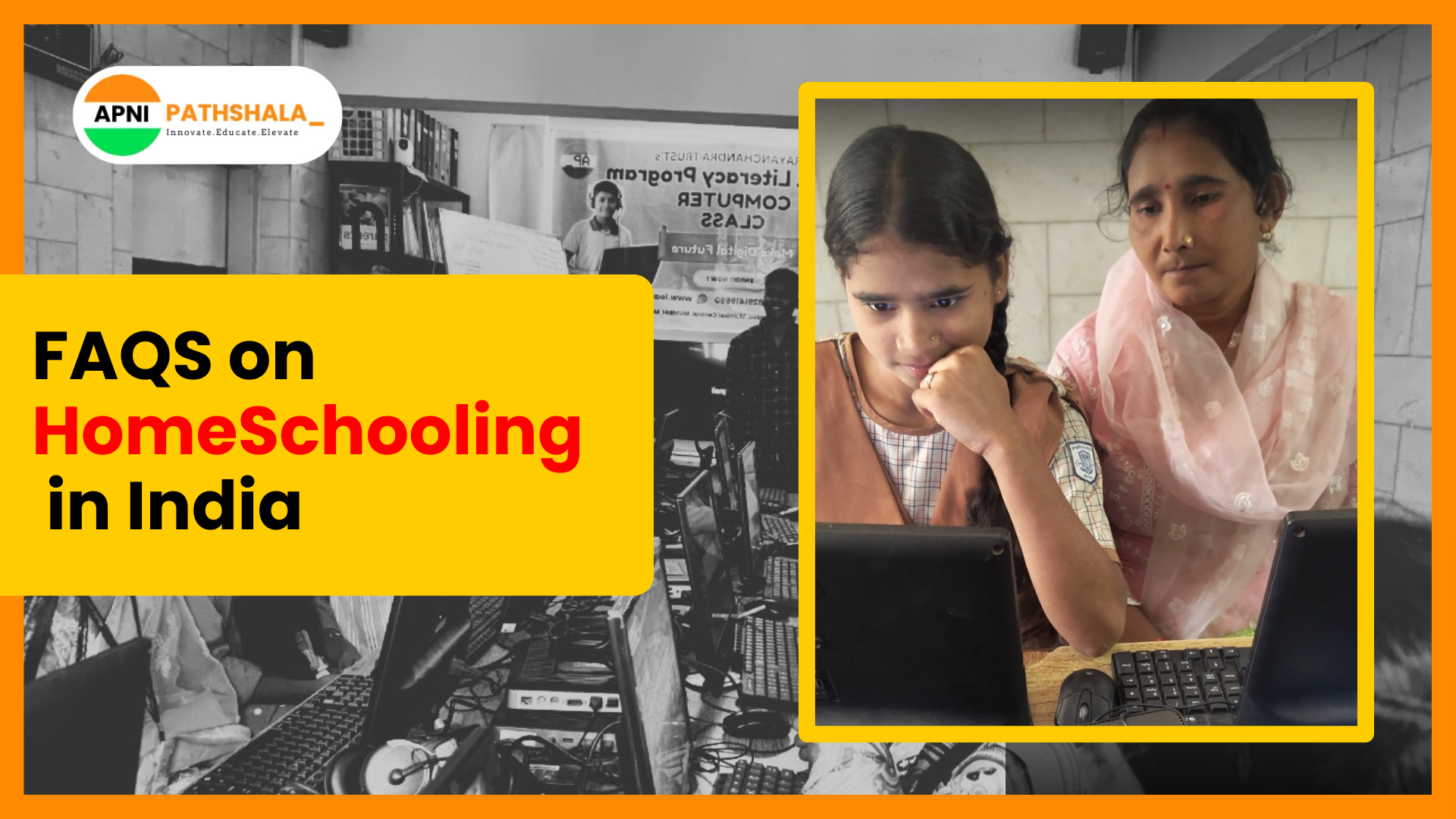Is school really the only way to educate a child in India?
Short answer: No.
Better answer: Welcome to homeschooling in India, where learning actually makes sense.
If you’re tired of this rat race for marks, and the overall education system that doesn’t even make any sense in big 2025, Homeschooling is the option for you.
Thousands of parents across India are now understanding this concept and choosing freedom and real learning for their kids.
And guess what? You don’t need a fancy degree, an expensive setup, or someone’s approval to homeschool.
All you need is the right information, and that’s exactly what you’ll find here.
Ready?
1. What is homeschooling, and how is it different from regular schooling?
Homeschooling means teaching your child at home instead of sending them to a traditional school.
It doesn’t mean you sit for 6 hours with textbooks. It means:
- Learning at your child’s pace
- Following a flexible schedule
- Using real-life, hands-on experiences
- Choosing the curriculum or even creating your own
No uniforms. No exams for the sake of exams. Just actual learning.
2. Is homeschooling legal in India?
Short answer: Yes.
But let’s break it down. There’s no law in India that says homeschooling is illegal.
The Right to Education Act (RTE) says every child has the right to education, but it doesn’t say schooling is the only way.
In fact, multiple High Court judgments (including Delhi and Tamil Nadu) have recognized the right of parents to homeschool.
So yes, you can legally homeschool in India in 2025 without worrying about court cases or jail time.
You don’t need:
- A special license
- Any government permission
- To register your homeschool
You just need a genuine intent to educate your child well.
3. Can I homeschool under CBSE or ICSE?
CBSE and ICSE currently do not allow private candidates (unless through NIOS or state boards).
But here’s the trick: you can:
- Follow NCERT or CBSE if you want to stick to the school route.
- Choose NIOS (National Institute of Open Schooling)—India’s official flexible board.
- Go for IGCSE / Cambridge if you want a global curriculum.
- Or go full unschooling, where learning happens through life, not textbooks.
4. Do Indian colleges accept homeschooled students?
100%, yes.
Colleges care about your board certificate, not where you studied. If your child clears 12th via NIOS or IGCSE, they’re eligible for:
- Delhi University
- Mumbai University
- JNU
- CUET, NEET, JEE
- And even Ivy League universities abroad
A lot of students who cracked top exams in recent years had alternative education backgrounds, some even unschooled till 10th.
So no, homeschooling won’t “spoil” your child’s future. If anything, it might unlock it.
5. How do I start homeschooling in India?
Starting homeschooling in India can feel like a big decision, but taking it step by step will make it much easier. Here’s how you can get started:
- Talk to your child and your family: Begin with a conversation about homeschooling. Ask your child what they think and whether they’re excited about this new approach to learning. Explain the benefits and how their input will be valued.
- Choose a curriculum or method: There are different ways to homeschool, so decide which method works best for your child:
- Montessori: Great for younger kids, focusing on self-directed learning and hands-on activities.
- Unschooling: Let your child explore topics based on their interests, with little structure or formal curriculum.
- Waldorf: Focuses on creativity, arts, and a connection with nature.
- NIOS/IGCSE: If you prefer a more formal approach, you can choose the National Institute of Open Schooling (NIOS) or Cambridge IGCSE for a recognized, structured curriculum.

- Create a basic timetable: Having a flexible timetable can help organize the day. Plan learning activities around your child’s most productive times (morning or afternoon). Make sure to balance study with play, outdoor activities, and family time.
- Join homeschooling communities for support: Homeschooling can feel isolating at times, but there are plenty of communities you can join for advice, resources, and moral support.
- Keep it fun!: Learning at home doesn’t have to be boring or stressful. Get creative with the subjects. Use field trips, hands-on projects, and interactive learning tools like apps or games. This makes homeschooling enjoyable and keeps your child engaged!
6. Do I need to register somewhere for homeschooling?
No. There’s no formal registration required for homeschooling in India (as of 2025).
But keep records of your child’s learning journey, just in case you need it later for exams or transitions.
7. How Much Does Homeschooling in India Cost?
Let’s be very clear: Homeschooling does not mean expensive international schools.
You can homeschool in India for as low as ₹3000/month, or go as high as ₹30,000/month depending on your style.
Here’s a quick cost table:
| Style | Monthly Cost (Approx) | Includes |
| Budget | ₹2,000–₹5,000 | NCERT books, free apps, DIY worksheets |
| Balanced | ₹5,000–₹10,000 | Live online classes, tutors, and paid apps |
| Premium | ₹15,000–₹30,000+ | International curriculum, mentors, pods |
Homeschooling lets you control the budget, unlike fixed private school fees.
8. Do I have to be a trained teacher to homeschool?
Not at all.
You just need patience, curiosity, and a willingness to learn with your child. Use online resources and community support to guide your journey.
9. What are the benefits of homeschooling in India?
- Personalized learning
- Focus on real skills, not just marks
- Mental health and emotional well-being
- Closer family bonds
- More time for passions (music, coding, art, etc.)
10. What are the challenges of homeschooling in India?
- Lack of formal structure or government. support
- Constant questioning by relatives/society
- Parents juggling time/work
- Finding the right curriculum
11. Can my child go back to regular school later?
Yes. Schools may ask for an entrance test or interview. Just keep records of your child’s learning.
12. Are there support groups for homeschoolers in India?
Absolutely. Look for:
- Local WhatsApp or Facebook groups
- Homeschooling India communities
- Apni Pathshala’s free mentorship
Final Thoughts:
Homeschooling isn’t just an educational method. It’s a mindset shift. You don’t need to be perfect. You just need to care.
Start with free community classes, attend a few homeschooling meetups, or download a weekly planner.
Read success stories and explore options at Apni Pathshala: one of India’s most trusted learning communities.Your child deserves a life of curiosity, confidence, and freedom.
And you have the power to give it to them.

